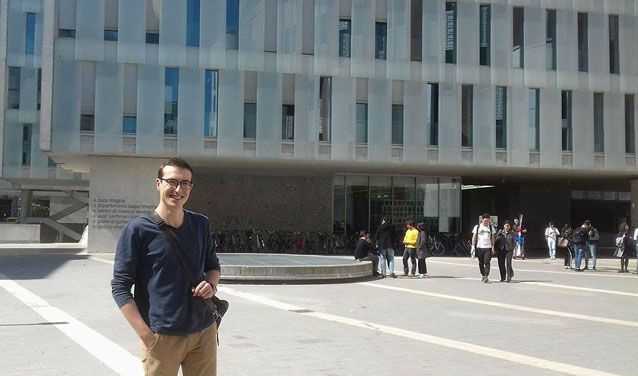Home>“Management skills are crucial for anyone interested in public policymaking”

05.04.2017
“Management skills are crucial for anyone interested in public policymaking”
Paul Laurent is a student enrolled in a dual Master’s degree offered by the Sciences Po School of Public Affairs and Bocconi University. He is currently completing his year at Bocconi University in Milan. Interview.
You’re studying management at Bocconi University this year. Can you tell us about your courses and about the educational approach at Bocconi University more generally?
Basically, the programme at Bocconi is based on two pillars, which are strongly interrelated: managerial tools, and policy analysis and evaluation.
The courses at Bocconi, and the educational approach itself, have a very applied, practical focus—studying public accounting, capital budgeting, performance management or public management is uncommon at Sciences Po. Group projects (in partnership with the Municipality of Milan, for example) and case studies are often central to course requirements, while research essays or presentations are less common. Both have advantages and disadvantages, and it’s good to experience both approaches.
Bocconi also offers a wide range of courses beyond the scope of a traditional business school. It has renowned economics and social sciences departments, and I have been able to take courses in quantitative methods, policy evaluation, and public and development economics that were a real complement to the classes mentioned above.
Finally, we also have to write a thesis, either an applied or research thesis, which is a great opportunity to go in depth into a chosen topic under the supervision of esteemed professors.
You spent the first year of your dual degree studying public policy at Sciences Po. Why did you choose a programme combining public policy and management?
The idea to apply to Bocconi occurred to me after my gap year, during which I did two internships in the French administration. The first, at the French Court of Audits, made me realise I wanted to learn more about public policy evaluation; during the second internship, in a Parisian museum, I realised how important management and financial skills can be for the success of a public entity. Management and analytical skills are crucial for anyone interested in public policymaking.
Besides, Bocconi University is renowned for its healthcare management and economics focus (Centre for Research on Health and Social Care Management (CERGAS), Department of Policy Analysis and Policy Management), which is the field in which I would like to work later. I was able to attend healthcare management and policy classes and I am currently writing a research thesis related to hospital management reforms.
What is life like at Bocconi? How different is it from last year at Sciences Po?
Life at Bocconi is very pleasant and academically fulfilling, like at Sciences Po, with many events, conferences, and associations; there seem to be fewer associations than at Sciences Po, with less political involvement, yet this may be due to my perspective as an international student. While the University itself is not aesthetically pleasing, it is close to the centre of Milan and surrounded by cafes, restaurants and all that encapsulates the dolce vita and Italian charm. More generally, Milan is a vibrant and welcoming city, and I have thoroughly enjoyed my time here so far.
What are your plans for the future?
Dual-degree students come from and go into very diverse fields, but I would say that many tend to work in consulting firms, international organisations or NGOs. As for me, given my interest in healthcare management and policy, I’m considering either taking the French civil service entrance examination to become a hospital director, or working in healthcare policy evaluation.
Related links